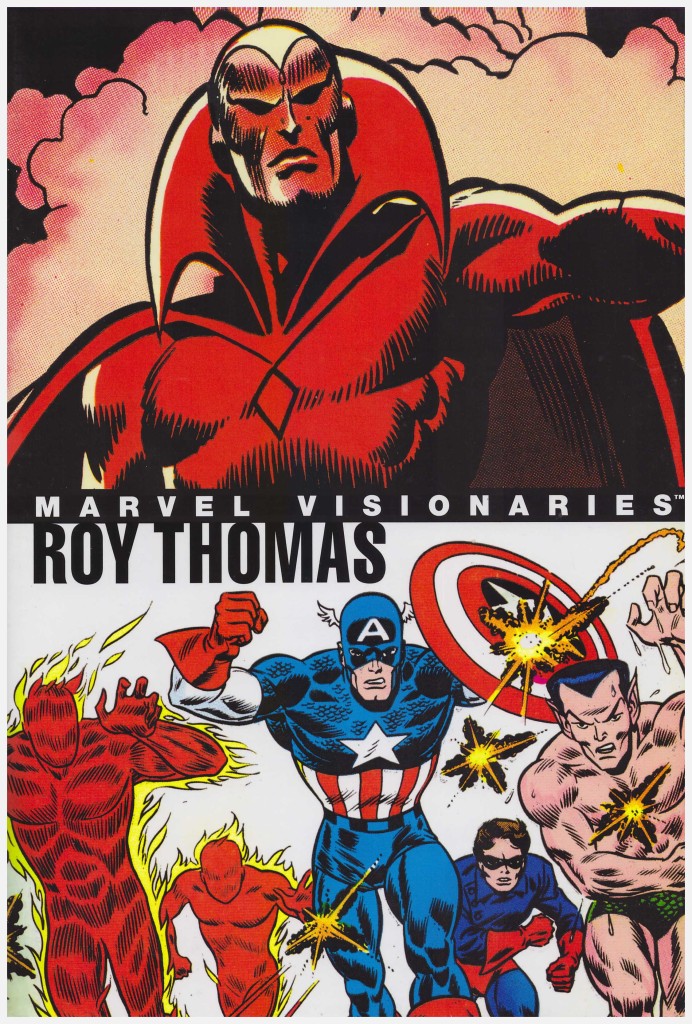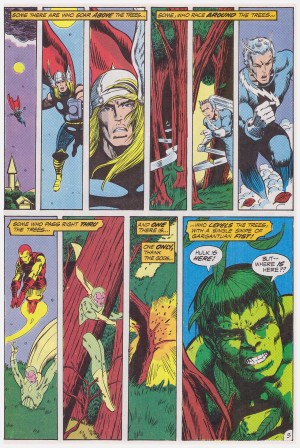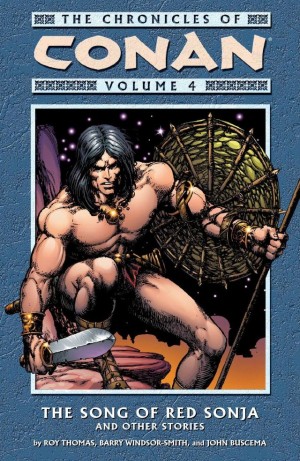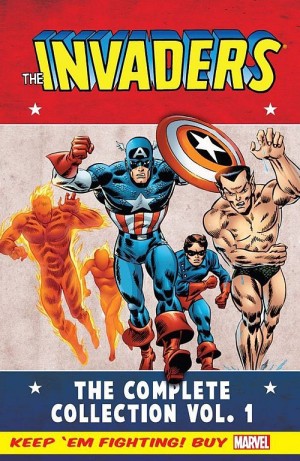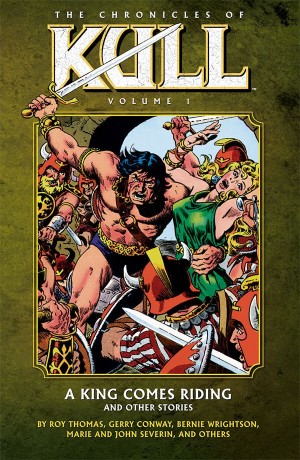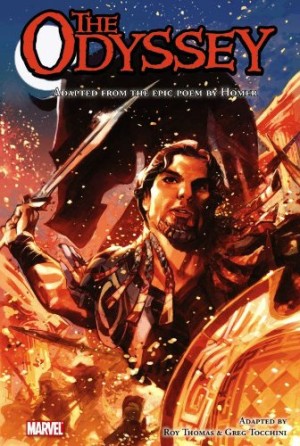Review by Frank Plowright
Beyond the founding fathers of Steve Ditko, Jack Kirby and Stan Lee no-one has been as influential in building Marvel into the commercial behemoth it became than Roy Thomas.
He arrived in 1965, after rapid disenchantment with previous employers DC, publishers of the characters he loved as a child. Thomas had vision, intelligence and an eye for the outside world that eluded the older generation. The rights to the Conan and Star Wars material he wrote lay elsewhere when this book was published, so as an accumulation of his accomplishment it’s incomplete, but what there is adequately conveys the scope of his talent.
As this is a career overview, of his Marvel work at least, the earlier material is mundane. Thomas learned his trade, scripting Iron Man and Avengers over Stan Lee plots, and plodding his way through a Millie the Model tale. His pair of Sub-Mariner strips are laboured, and time has eroded the once classic introduction of the Vision to Marvel, which now feels melodramatic rather than heart-rending, although concluding one issue with Shelley’s Ozymandias remains boldly appropriate. Rewriting the lyrics of popular 1960s musical Camelot for a parody of Marvel characters produces wit in places, but it’s a joke stretched too thin.
Some material has also dated. Thomas was relatively sparing with thought balloons, but there are some patronising comments regarding women that extend beyond the characters, and some dialogue is very much of its era. Balancing this are stories where chances were taken.
This is from the halfway point and material from the late 1960s onward where we discover why Thomas merits the collection. He introduces contemporary issues such as social deprivation, apartheid and Japanese nationalist resentment over Hiroshima to his superhero stories, yet this never overwhelms their purpose. He always had a flair for the dramatic, but learned not to tip over the edge, and what was the hundredth issue of the Avengers remains a masterpiece of economic and unconventional storytelling given the scope of events. These days it would be a graphic novel itself.
Of course, it helps when that’s illustrated by Barry Windsor-Smith at his decorative peak (featured art). Thomas is well served by artists throughout, with Neal Adams, John Buscema, Gene Colan, Butch Guice, Gil Kane and George Pérez all still looking good. Don Heck attempting to emulate Adams’ graphic layouts is a novelty, Marie Severin is excellent at the comedy, not so appealing at superheroes, Herb Trimpe ideally suited to the chosen Hulk short, and the combination of Al Weiss and Dick Giordano extraordinarily decorative on a clever Dracula story. Frank Robbins’ Milton Caniff influenced style wasn’t contemporary in 1975, but time has been kind to his idiosyncrasies and he established a kinetic look for the World War II era Invaders that few of his successors matched.
For what’s supposed to be a prestige presentation hardcover honouring a Marvel great with a price to match, it’s disappointing to note that one of the 1960s Avengers issues suffers from muddy reproduction. This is presumably through the use of second-hand sources rather than the original material, and a lack of restoration.
Thomas provides chatty annotations, aided by a prodigious memory, and the whole collection indicates the variety of material available to a writer of his era. Even the best contemporary comic writers stick largely within a comfort zone. Not everything here is pure gold, but there’s enough that stands the test of time to entertain many years later.
